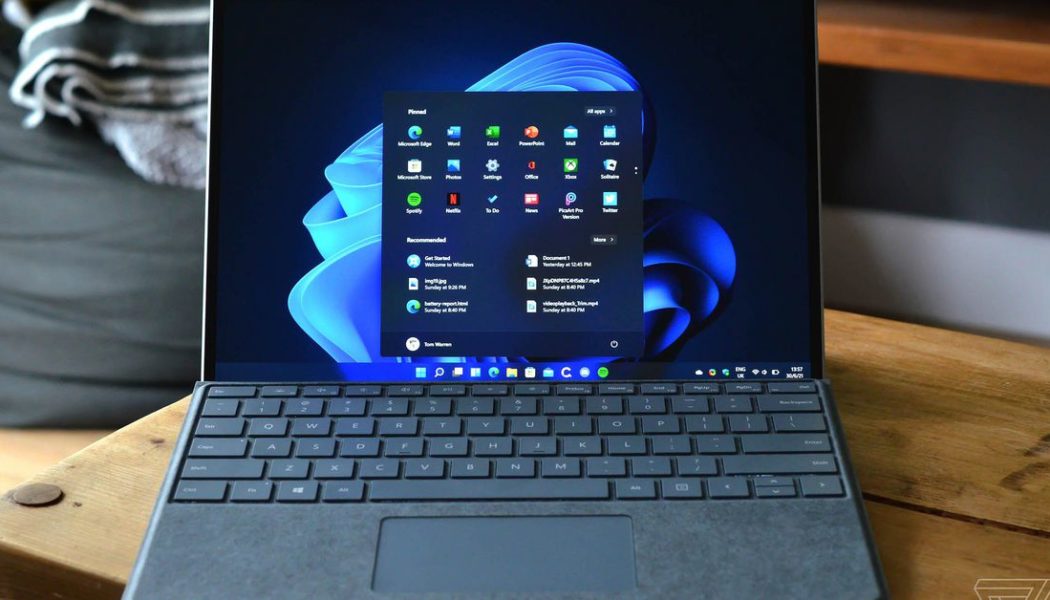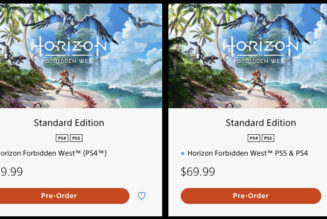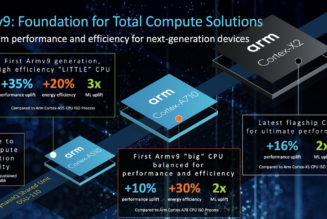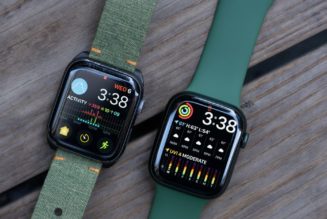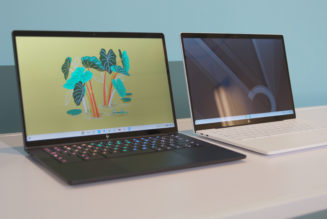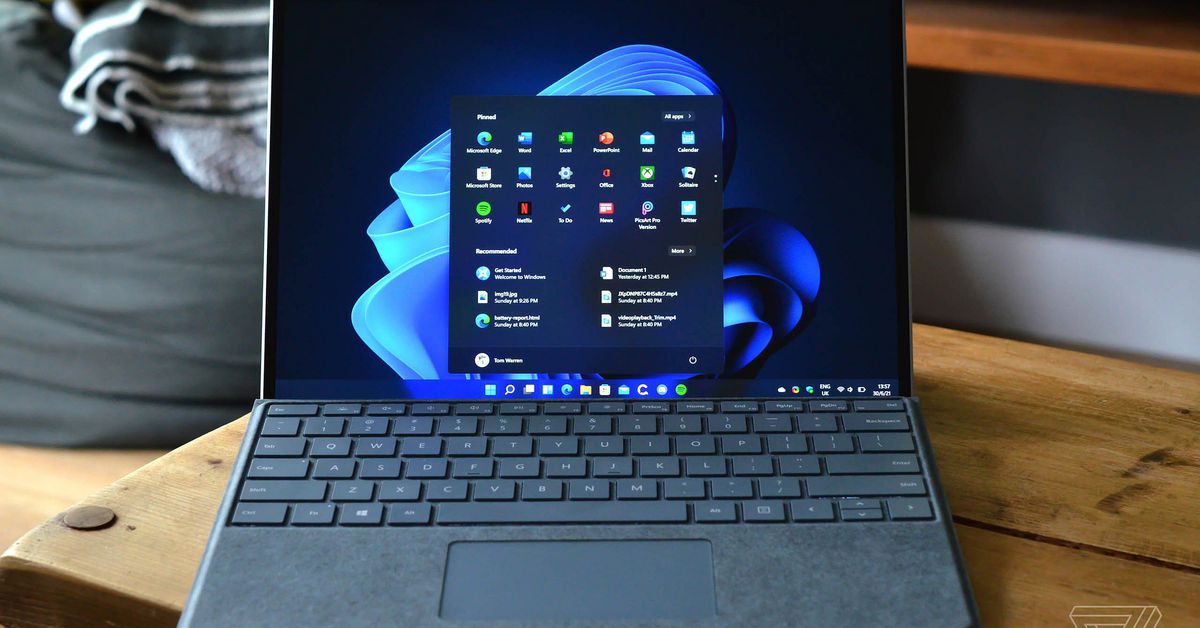
Microsoft’s next version of Windows, Windows 11, is coming October 5th. In many ways, it’s already here — the free update has been available for Windows Insiders to download and test for months, and recent versions like the Release Preview will likely be indistinguishable from the final operating system.
We’ll have a full review from Tom Warren next week, but in the meanwhile we thought we’d give you a look at how The Verge at large feels about upgrading to the new OS — by asking every other prominent Windows user on the team to install the most recent version on their own home computers, and gathering their impressions.
Here’s how it’s going so far.
On a home-built desktop (Core i7-7700K, RTX 3060 Ti) and a 2017 Dell XPS 15 laptop (Core i7-7700HQ)
Windows 11 insists my desktop’s 7th-gen Intel CPU isn’t good enough, despite having practically every feature (and quite a bit more performance) than the lowest end 8th-gen chips on the company’s compatibility list. But that didn’t stop me from installing a copy of Windows 11 right over my copy of Windows 10 by using the ISO image — I just needed to turn on my TPM module and enable Secure Boot in my motherboard’s BIOS, and click through a scary warning message. (Windows disqualified my 7th-gen laptop and forced me to do a clean install, though, so I did a dual-boot there.)
Since then, it’s been a practically painless upgrade. Almost everything was exactly where I left it, and almost everything works just the way I’d expect, including PC games. (Wallpaper Engine did forget how to load new wallpaper at first, and there were a few times my system failed to wake from sleep.) My XPS 15’s fingerprint reader and nose-hair webcam are still terrible, but they’re no worse than they were on Windows 10 — Windows 11 pulled down all the drivers I needed automatically once again.
But nothing feels much better, either, so I don’t see any reason to upgrade. HDR is still a mess, and I’m with Tom on the Windows 11 taskbar: it’s a giant step back. It’s annoying to have to launch an app before I can pin it to my taskbar, and annoying to have to manually toggle on every icon I want in my system tray. Why do I have to launch an entire new window to adjust the volume mixer? Is there a reason why my audio devices are in a different place?
But I haven’t found enough wrong with Windows 11 to bother uninstalling it and going back. — Sean Hollister
On a 2019 Dell XPS 13 7390 laptop (Core i7-10710U)
I had a particularly bad time upgrading my last computer from Windows 7 to Windows 10 — I ended up having to wipe the system and start from scratch — so I was relieved and, to tell the truth, a little surprised at how smoothly this upgrade to Windows 11 went. Everything still works, and continues to work, so there’s no reason to do a panicked return to Windows 10. The only glitch I’ve experienced so far is that, just after upgrading, both the Chrome and the Edge browsers refused to show Facebook, but a reboot fixed that.
That being said, I am not thrilled with the new taskbar and Start menu. While I never got around to really customizing the Start menu the way Tom does, I did like the look of the tiles, and because I’m a rabid organizer, I really liked the way I could group the tiles to reflect the way I was working, and regroup them whenever I needed to for my current projects. This new taskbar, with its real lack of customization options, feels a little like Microsoft no longer trusts its users to be knowledgeable enough to handle a more complex menu system.
I’m just starting to explore Windows 11, so it’s possible I’ll find more things to like or dislike. But so far, it’s working fine for me — I’m just not sure I like it better. — Barbara Krasnoff
On a home-built desktop (Core i7-4770K, GTX 980 Ti)
I jumped through many hoops to install Windows 11 on my very unsupported, pre-TPM, non-Secure Boot personal desktop. I built this machine in 2014, upgraded it to a 980 Ti in 2015, and it has been my sole everyday personal computer for gaming and photography ever since. It’s been a solid performer on Windows 10 all these years, still meeting or exceeding minimum requirements for the games I play — of which I ask no more than 60 fps at modest settings.
To get Windows 11 installed, I used a Windows 10 ISO that I modified using part of the Windows 11 ISO, essentially tricking Windows 10 into upgrading to 11. The OS thought it was running a Windows 10 update, up until a Windows 11 login screen suddenly appeared. It all felt a bit dicey and very nerve-wracking, but it worked! It didn’t even require a wipe or clean install.
So how does Windows 11 run on a seven year-old unsupported machine after going through a process like that? Surprisingly, a whole lot like Windows 10. If you covered up the user interface changes and aligned the Start Menu on the left, I might have a hard time telling the difference. Lightroom Classic runs about as fine with my full frame camera RAW files as it normally does, which is just a notch or two above infuriating, but passable. Fall Guys still runs at a solid 60 fps. Diablo 2 Resurrected is usually between 55-60 fps with a mix of low and moderate settings. There were a few small hiccups here and there when I first booted up some of those games, but Windows 10 was not without the odd gremlin. Now that I got through that iffy update process, I can summarize my feelings toward Windows 11 with one big shruggie. ¯\_(ツ)_/¯
I don’t dislike it. I don’t love it either, but it looks kinda pretty. Sometimes a fresh coat of paint is all you need, annoying start menus and taskbars notwithstanding. — Antonio G. Di Benedetto
On a home-built desktop (Core i5-9600K, RTX 2070)
Okay, so I had a feeling that installing on my DIY PC was going to be a process. I failed the PC health checkup. “But doc! I feel fine,” I felt like my PC was saying. As if I had zero things to do on this particular day, I decided I’d try pretty much anything to get my PC to pass the test so it wouldn’t put up a fight during the installation process.
The big hurdle I (and my PC) had to overcome was converting the boot drive’s partition table type from MBR to GPT. Do I remember choosing MBR when I installed Windows 10? Not at all. Thankfully, Microsoft made a handy MBR2GPT.exe tool that can execute within Command Prompt, swiftly doing the lord’s work to my SSD while I poke around online. It might work for you. It did not work for me.
I kept failing the disk validation. Over and over. Running out of options, I made a bootable USB drive with GParted on it, with the hopes that it can do what this other tool couldn’t, so I could get on with my day. But at this point, I had already grown impatient at how long this stupid process was taking. I’m the only one who uses my PC! I don’t really need Secure Boot!
In my fervor for trying to wrap it up quickly, I, you know, deleted my entire OS. Of course there were important files on it. No, I don’t remember what they are just yet (and I hope to never remember so that I don’t feel regret for my impatience).
The good news, I guess, is that I have Windows 11 now. It’s fine, but I was content with the idea of using Windows 10 for the rest of my life. It ran well, and I just didn’t really think about what could be since it did everything I wanted it to. I guess I took it a little too seriously when Microsoft said that Windows 10 was the last version of Windows. — Cameron Faulkner
On a Lenovo ThinkPad T480 laptop (Core i5-8250U)
Since my Windows 10 install is filled to the brim with things that would be a pain to re-set up and various hacks that keep everything running, I decided not to risk anything and installed Windows 11 on a separate partition. Switching between them, I can say that Windows 11 looks much nicer to my eye — except for the fact that you can’t put the taskbar on the top, because Microsoft hates me.
I don’t have hours and hours of stability testing, but throughout the beta it’s been mostly fine except for one infuriating bug — if I plug or unplug my computer from power, it’ll freeze for a few seconds, and the screen will flash black a few times. This doesn’t happen in Windows 10, and it’s been a problem since I first installed the preview. I’ve also just recently started having issues with my LG UltraFine 5K as well. It’ll go black for a few seconds every minute or two, though Windows doesn’t seem to register that it’s dropped off. I get that it’s a Thunderbolt display mostly made for Macs, but these issues haven’t cropped up in Windows 10. Until they’re gone from my test install, I’d really rather not upgrade to Windows 11 on my main partition. Other than those issues, though, it’s been like using a prettier version of Windows 10.
One last quick note though: one of the things I was most excited about for Windows 11 was Visual Studio’s Hot Reload feature, where you’d be able to quickly test changes to your code without having to rebuild it. It turns out that I have it on Windows 10 now, and it hasn’t worked the few times I’ve tried to use it. Ah well. — Mitchell Clark
On a 2015 Surface Pro 4 (Core i5, 4GB RAM)
My Windows 11 journey was a bumpy ride. I started out with an outdated Windows 10 preview build on my Surface Pro 4, which meant I couldn’t get Windows Update to check my device’s eligibility for Windows 11. My device is from 2015 so it’s definitely out of the 5-year scope that Windows recommends for Windows 11.
Since I don’t have anything of value on this device, I decided to wipe this puppy with a clean install of the Windows 11 Release Preview. I downloaded the ISO from Microsoft, then used Rufus to format my USB drive and create the bootable USB. I plugged in the USB and my little machine did the rest.
The most notable difference between Windows 10 and Windows 11 for the SP4: my touchscreen is quite laggy if not entirely useless, especially at start-up. I have to use my mouse and keyboard to navigate the login, when I usually can swipe up to enter my password (now my Windows Pin). While some of the new features like Windows Snap work well, I was disappointed (though not surprised) that my default web browser Firefox doesn’t support it yet. Also, where is my list of apps? — Gloria Sin
On an Alienware R10 (Ryzen 5600X, RTX 3070, 32GB RAM), a 2020 Dell XPS 13 (Core i7-1165G7, 16GB) and a 2015 XPS 13 (Core i5-5200U, 8GB)
One of my machines is old enough that it originally shipped with Windows 8, and I was surprised to find it didn’t meet Microsoft’s minimum supported specs for Windows 11. It has Secure Boot and TPM 2.0, but the Core i5 CPU is a few generations too old for their liking. Despite that, performing a clean install was as easy as ever and it flew by without so much as a warning. Windows 11 performs just as well on that old laptop as Windows 10 ever did — and much better than Windows 8 — despite the limitations imposed by just 8GB of RAM.
On a more modern version of the same XPS 13, I never looked back after installing a beta version of Windows 11. Other than that minor snafu with the Start menu disappearing one night, it didn’t have any problems. On that machine more than any other I appreciate the various tweaks to the UI, it feels at home and performs like it.
On my desktop is where I ran into the biggest snag — Tom’s pet issue about the lack of clock display on all monitors — but also one of the most significant benefits. A new Snap Layouts feature makes it much easier to align Tweetdeck, Chrome, and Slack on my main screen.
The only thing that made me regret upgrading wasn’t on these computers, and it’s not a problem with Windows 11. While trying to downgrade back to Windows 10 on a different computer I was giving to a friend, the installation process ran into a still-unfixed driver issue with the Windows 10 setup process and blue screened. If there’s a chance you might have to roll back, then don’t forget you’ll be doing it to an older/finickier OS, and one that annoyingly pops up Cortana for some reason. Otherwise, I didn’t see any problem with updating right away. — Richard Lawler
On a home-built desktop (Ryzen 9 5900X, RTX 3090)
Compared to some of my colleagues’ tribulations, my process to upgrade to Windows 11 was mercifully simple. Outside of making sure that all my files were backed up on an external hard drive and then securely locked away in a shielded bunker and a certain amount of trepidation, everything from start to finish mostly went off without a hitch.
The now Cortana-less setup is definitely an improvement, but I’m still peeved by the amount of preferences and services I need to opt in/out of. C’mon Microsoft, if I’ve told you once, I’ve told you a million times, stop trying to make OneDrive work for me, it’s not going to happen. I could understand this barrage of questions if I was performing a fresh installation, but if I’m upgrading, I would’ve expected it to remember my preferences.
Once I’d finally gotten my preferences where I wanted them and booted up, the most apparent change was the default placement of the start menu. Having the little Windows icon in the center of the taskbar took a little getting used to, but after using it for a while, I can’t imagine putting it anywhere else.
While I’m glad that the start menu is far less cluttered I wish Microsoft would give us more freedom to customize that space. Why let me get rid of the recommended tab if I can’t use that space for something else?
These are all minor quibbles of course, considering the hoops that some of my colleagues had to jump through. But all things considered, I’m glad I upgraded to Windows 11, and I’m happy with the direction Microsoft is taking. — Alice Newcome-Beill
On a home-built desktop (Ryzen 5 5600X, RTX 3080) and a Razer Blade 14 laptop (Ryzen 9 5900HX, RTX 3070)
To be honest with you, I can’t tell you exactly why I upgraded. I use my desktop exclusively for gaming, and despite Microsoft’s insistence that Windows 11 is the best Windows yet for gaming… I’m not sure there’s a lot to back that claim up. But I upgraded anyways and, what’s this? A version of Windows that is maybe possibly actually attractive? Sure, there are spots you can find that reveal a pre-glowup Windows (my favorite: somehow Windows Media Player was the default media player for MP4s? Woof, what an app) but overall, I can say that something about Windows 11 is just fundamentally more pleasing to be around. Having used Mac OS from ~2001 until 2017 every day, it has been hard for me to admit just how important that user environment was to my overall satisfaction using those computers for extended periods of time. But with Windows 11, Microsoft has made meaningful progress towards providing a desktop computing environment that appears to be designed by actual professionals. Kudos!
And that was enough to convince me to install it on my new work laptop, which I spend a lot more time with. In that environment, I pair it with a 32” external display. And while I’m not plugging and unplugging my laptop as much as I may have in the past (I don’t have anywhere to be anymore!) it has been an improvement to have apps return to their previous locations, for the most part. This is the dumbest, lowest-hanging fruit “feature” but Microsoft wasn’t too embarrassed to highlight it, so I’ll report back here: 36-year-old operating system developed by trillion dollar company does basic task sufficiently. Hurray?
One last observation: Microsoft, I do not want to use OneDrive or Teams. Seriously, cut it out, it’s weird. — Chris Grant
On a home-built desktop (Core i9-9900K, RTX 3080)
Replacing Windows 10 with 11 felt like I’d gotten a brand new computer. Part of this may be because I had a new monitor — but it’s also the OS! It just feels cleaner and faster. There are still plenty of little quirks that irritate me. Menus that haven’t been updated, and others that seem to been annihilated entirely (I will miss you super detailed and super ugly and half hidden Power Management Menu).
But ultimately it just feels like an upgrade. Maybe because Valheim feels more stable on it then Windows 10.
But perhaps I can’t be trusted for an opinion on this. I like the Chromium-based Edge browser and enjoy the task bar being center stage. — Alex Cranz
